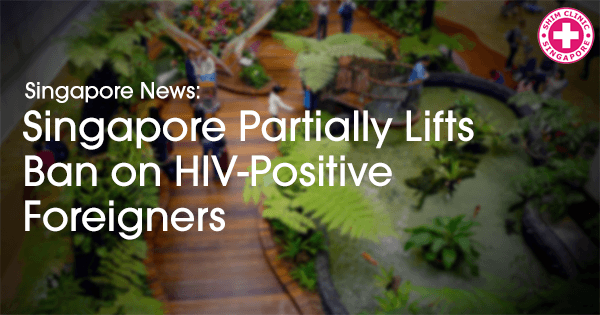Back in 2011, Singapore residents with the HIV virus numbered around 5,000. At the end of 2014, that number was 6,685, and about 49 per cent of the new cases reported were already in the late stages of the HIV infection. With the rise in HIV cases within the city-state, it’s not surprising that the Singapore government has kept HIV-positive foreigners outside its borders. However, that ban was lifted in August of 2015 for a specific kind of visit.
Blacklisting HIV-Positive Foreigners
The ban on HIV-positive foreign visitors has been in place for over twenty years. It was put in place during the 1980s, when the HIV/AIDS scare was at its height. No one really understood HIV or AIDs, and no one had an effective treatment for it. Becoming infected was essentially a death sentence. In reaction to the fear and lack of information, Singapore enacted a permanent blacklist against HIV-positive foreigners, aimed at limiting the number of infected among its population.
Understanding the Modern Reality
Today, however, between 5,000 and 6,000 HIV-positive residents live in Singapore anyway, and many of them are able to lead relatively normal lives thanks to modern antiretroviral treatments. Patients with HIV take a complex regimen of medications each day to keep the virus from progressing and destroying their immune system.
Lifting the Ban on Short-Term Visits
Because of these factors, the Singapore Ministry of Health decided in 2015 to allow short visits by foreigners with HIV. Only short-term travel requests are being approved since those brief visits do not pose much of an additional risk to Singapore’s population.
However, the policy on long-term visits or residency remains in place. No foreigners with HIV are allowed to visit long-term or seek permanent residence within Singapore. Action for Aids, an advocacy group, praises the lifting of the short-term ban as a step in the right direction; but AFA still frowns on the long-term ban, calling it a form of discrimination against people with HIV.
Finding Other Ways to Keep HIV in Check
Since HIV is most often transmitted through unprotected sexual contact, the Singapore Ministry of Health promotes a clean, monogamous lifestyle as one way of preventing the virus’s spread. According to the advisory on the MOH website, “the most effective way to prevent HIV infection is to remain faithful to one’s spouse/partner and to avoid casual sex, or sex with sex workers. Persons engaging in high-risk sexual behaviour, such as having multiple sexual partners or engaging in casual or commercial sex, are strongly advised to use condoms to reduce their risk of HIV infection.”
Testing Early and Often for HIV
The Ministry of Health goes on to advise “early and regular HIV testing” for anyone who engages in high-risk sexual behaviour. If you are involved with multiple partners or have had unprotected sex with someone who may have HIV or another STD, visit Shim Clinic right away for STD testing, including an HIV test. Other than prevention and protection, early detection is the best way to preserve your health. If medical professionals can identify your HIV positive status early enough, they can help you get it under control before it ravages your body and destroys your immune system, leading to AIDS.
Don’t risk the rest of your life for a few minutes of fun. Think carefully about how you enjoy your private life, and visit Shim Clinic to discover HIV PEP, Truvada, and other new ways to defend your body against HIV.

